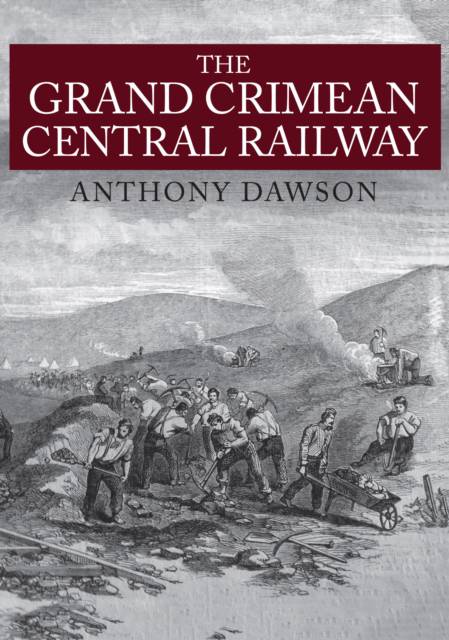
- Afhalen na 1 uur in een winkel met voorraad
- Gratis thuislevering in België vanaf € 30
- Ruim aanbod met 7 miljoen producten
- Afhalen na 1 uur in een winkel met voorraad
- Gratis thuislevering in België vanaf € 30
- Ruim aanbod met 7 miljoen producten
Zoeken
Omschrijving
The Crimean War, fought by the alliance of Great Britain, France, and the tiny Italian Kingdom of Piedmont-Sardinia alongside Turkey against Tsarist Russia, was the first 'modern' war, not only for its vast scale (France mobilised a million men) but also the technologies involved, from iron-clad battleships to rifled artillery, the electric telegraph and steam. Best known for the blunder of the Charge of the Light Brigade, the fearful conditions in the trenches at the front, and the quiet heroism of Florence Nightingale, the Crimean War saw the railway go to war for the first time. The Grand Crimean Central Railway was the brainchild of two Victorian railway magnates, Samuel Morton Peto and Thomas Brassey; in order to alleviate the suffering at the front, they volunteered to build at cost a steam railway linking the Allied camps at Sevastopol to their supply base at Balaclava. In the face of much official opposition, the railway was built and operational in a matter of months, supplying hundreds of tons of food, clothing and materiel to the starving and freezing men in their trenches. Largely worked by civilian auxiliaries, the Grand Crimean Central Railway saw the railway transformed into a war-winning weapon, saving countless thousands of lives as it did so.
Specificaties
Betrokkenen
- Auteur(s):
- Uitgeverij:
Inhoud
- Aantal bladzijden:
- 96
- Taal:
- Engels
Eigenschappen
- Productcode (EAN):
- 9781445671048
- Verschijningsdatum:
- 15/10/2019
- Uitvoering:
- Paperback
- Formaat:
- Trade paperback (VS)
- Afmetingen:
- 165 mm x 231 mm
- Gewicht:
- 317 g

Alleen bij Standaard Boekhandel
+ 41 punten op je klantenkaart van Standaard Boekhandel
Beoordelingen
We publiceren alleen reviews die voldoen aan de voorwaarden voor reviews. Bekijk onze voorwaarden voor reviews.







